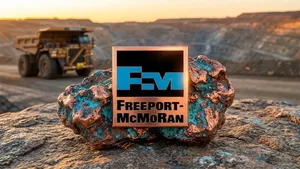Already carbon neutral since 2018, the company plans to set science-based targets for its operations and supply chain to reach this goal and provide $10 million in new philanthropic funding toward initiatives that address climate change
American Express (NYSE: AXP) today announced it has committed to net-zero carbon emissions by 2035, fifteen years ahead of the Paris Agreement’s 2050 goal. To achieve this ambition, the company will follow the Science Based Targets initiative (SBTi) methodology to set targets over the coming two years for its global operations and supply chain. American Express will also join the ‘Business Ambition for 1.5°C’ commitment and Race to Zero, and will provide at least $10 million in new philanthropic funding towards organizations and initiatives that drive action on climate change through 2025.
“Climate change is one of the most pressing issues we face right now, and we are seeing the devastating impacts around the world that remind us that we have a responsibility to take decisive action,” said Stephen J. Squeri, Chairman and Chief Executive Officer. “To further our impact, we will seek to innovate and advance sustainable solutions, and work with our business, vendor, and community partners to achieve net-zero emissions by 2035.”
Since 2018, American Express has remained a carbon neutral company across its operations and has been powered with 100% renewable energy.1 To achieve net-zero emissions, it plans to work with its suppliers to reduce their impact on the company’s value chain by inviting them to track, reduce, and eventually neutralize their own operational greenhouse gas emissions. As a first step, the company plans to partner with top vendors that are responsible for 50% of the company’s annual third-party spend to set their own science-based emissions reduction targets.
The company’s 2035 net-zero goal is based on SBTi’s ambitious objective of limiting global warming to 1.5°C, a critical target to avoid the most catastrophic threats of climate change as set out by the 2015 Paris Agreement. With this announcement, American Express is also proud to join the Race to Zero, a global campaign established by the United Nations Framework Convention on Climate Change (UNFCCC) to rally leadership for a healthy, resilient, and zero-carbon recovery.
As part of its objective to manage climate-related financial risks, American Express is also signing up to be a supporter of the Task Force on Climate-Related Financial Disclosures (TCFD), created by the Financial Stability Board and chaired by Michael Bloomberg. This signals the company’s belief, alongside more than 2500 organizations, that the TCFD framework increases transparency on climate related risks in the financial markets.
Investing in a Sustainable Future
In addition to its net-zero commitment and in an effort to build more climate resilient and equitable communities, American Express and the American Express Foundation plans to provide at least $10 million by the end of 2025 toward initiatives, partnerships, and programs that prevent and address the adverse effects of climate change. The company is also setting goals to enhance the management of climate-related risks and opportunities across its business, pilot low-carbon product innovations, including solutions to track and offset emissions by 2022, and identify opportunities to engage its global colleague base in sustainability initiatives and volunteer opportunities.
These goals are part of American Express’ commitment to advancing climate solutions, which is one of the core pillars of its ESG strategy and build on its previous efforts to support the transition to a low-carbon economy. In 2019, American Express set environmental goals for 2025 that cover energy and water use, waste generation, green building certifications, the phaseout of single-use plastics, and sourcing paper responsibly.
The company also launched the first American Express Card manufactured mainly from reclaimed plastic collected from beaches, islands, and coastal communities in 2019 along with a Card Take Back program for U.S. Card Members. More than 920,000 expired or non-working cards have been recycled to date. American Express also makes its Carbon Footprint Dashboard available to certain commercial clients so that they are able to track emissions data associated with their air travel, and through its colleague engagement efforts, has planted more than 150,000 trees in partnership with The Nature Conservancy’s Plant A Billion Trees program.
More information on the company’s sustainability strategy, goals, and progress will be available in the company’s 2020-2021 ESG Report, which will be published on September 28, 2021.
| ___________________________ |
1 Achieved carbon neutral operations for Scope 1 (direct emissions from sources owned or controlled by American Express), Scope 2 (indirect location-based and market-based emissions), and Scope 3 (waste and employee business travel, including third-party air, rail and rental cars) emissions through renewable energy credits, carbon offsets, and reduced GHG emissions. Operations include all our managed facilities, field sites and data centers. Managed facilities are individual properties operationally managed by our global real estate team and housing critical business functions. Field sites are individual properties that are not operationally managed by our global real estate team but directly by our business units. They are typically smaller sites, less than 30,000 square feet (including airport lounges, foreign exchange kiosks, and sales offices) that are owned or leased by American Express. |
ABOUT AMERICAN EXPRESS
American Express is a globally integrated payments company, providing customers with access to products, insights and experiences that enrich lives and build business success. Learn more at americanexpress.com and connect with us on facebook.com/americanexpress, instagram.com/americanexpress, linkedin.com/company/american-express, twitter.com/americanexpress, and youtube.com/americanexpress.
Key links to products, services and corporate responsibility information: charge and credit cards, business credit cards, travel services, gift cards, prepaid cards, merchant services, Accertify, InAuth, corporate card, business travel, and corporate responsibility.
Source: American Express Company
Location: Global
CAUTIONARY NOTE REGARDING FORWARD-LOOKING STATEMENTS
This release includes forward-looking statements within the meaning of the Private Securities Litigation Reform Act of 1995 which are subject to risks and uncertainties. The forward-looking statements, including the company’s aspirational emissions and climate-related commitments and goals, contain words such as “believe,” “expect,” “anticipate,” “intend,” “plan,” “aim,” “will,” “may,” “seek,” “should,” “could,” “would,” “likely,” “potential,” “continue” or other similar expressions. Actual results may differ from those set forth in the forward-looking statements due to a variety of factors, including: competition, brand perceptions and reputation; an inability to develop and market value propositions that appeal to Card Members and new customers; the amount and efficacy of investments in product innovations, resources, marketing campaigns and programs; changing customer behaviors, interest in the company’s products, resources and programs, and willingness to access capital provided by the company, spend money at small businesses and value environmentally and socially responsible products and services; management’s inability to identify suitable suppliers, grantees, partners and community investments and negotiate acceptable terms; an inability to build partnerships and execute programs with other companies and of partners to meet their obligations to the company; changes in developing standards and certifications; the cost and availability of renewable energy, carbon removal and carbon offset projects, energy attribute certificates, certified paper and green buildings, and alternatives to single-use plastic; supply chain and market disruption; regulation; potential M&A activity; severe weather conditions, natural disasters and other catastrophic events; changes in the company’s real estate, technology, colleague and community engagement, and risk management strategies; an inability of waste management systems to divert waste to recycling and composting facilities; and changes in economic or business conditions and the company’s ability to grow, improve its financial performance and execute on its strategies. A further description of these and other risks and uncertainties can be found in the Company’s Annual Report on Form 10-K for the year ended December 31, 2020 and the Company’s other filings with the U.S. Securities and Exchange Commission. You are cautioned not to place undue reliance on these forward-looking statements, which speak only as of the date on which they are made. We undertake no obligation to update or revise any forward-looking statements.
View source version on businesswire.com: https://www.businesswire.com/news/home/20210921005301/en/
Contacts
Media:
Leah M. Gerstner, Leah.M.Gerstner@aexp.com, +1.212.640.3174
Azar Boehm, Azar.Boehm@aexp.com, +1.212.225.4052





